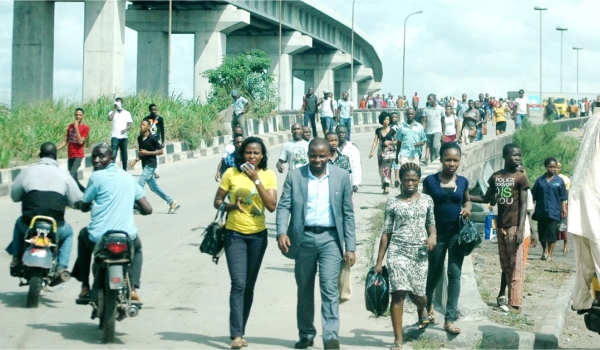Some residents of Bauchi have resorted to trekking as part of survival strategies to cope with the rising cost of living triggered by petrol price hikes.
Workers, traders, and students resorted to trekking for their daily errands as they could not afford the exorbitant transport fares.
The situation was further compounded by the scarcity of commercial vehicles plying the roads in the metropolis.
Servicing stations dispensed petrol between N1,060 and N1,200 per litre, while the product sold at N1,400 per litre at the black market outlets.
Mohammed Saleh, a resident, said the hike in pump prices forced cabs, tricycles and motorcycle riders to increase transport fares by about 300 per cent.
He said the surge in transport fares had forced many residents to embrace trekking or adopt other survival strategies.
“A trip that previously cost N100 now goes for N400. We have no choice but to trek to our places of work and businesses.
“The hike in fuel prices has made transportation costly. Sadly, our salaries can’t keep up,” Mr Saleh said.
A commercial motorcycle operator, Audu Bakoji, said he was not making good sales now due to low patronage of their services.
“People are not patronising us; we’re operating at a loss,” said Mr Audu. “Petrol now costs between N1,060 and N1,200 per litre. Most passengers can’t afford trips, leaving us without customer.”
Corroborating Mr Bakoji, a bus driver, Musa Yakubu, called for urgent measures to address the problem and improve the well-being of the people.
“We urge the government to find a lasting solution to the fuel price crisis. We can’t continue like this. Our livelihood depends on it,” he said.
Aisha Mohammed, a petty trader, said the petrol price hike has not only crippled transportation but also taken a toll on residents’ health due to the long trek.
“Trekking long distances has become the norm; we’re exhausted. And my sales dropped significantly,” she said.
Commenting, Rabiu Baba, chairman of the Independent Petroleum Marketing Association of Nigeria (IPMAN), attributed the disparity in petrol pricing to the high cost of transportation.
“The price of petroleum commodities is determined by the transportation cost to your destination,” he said.
(NAN)


